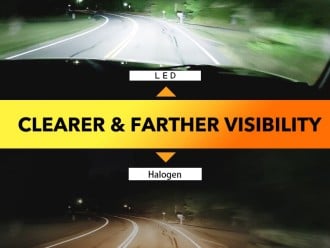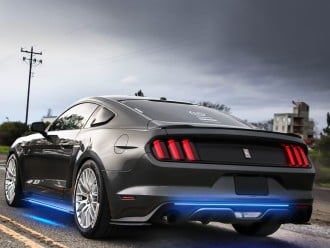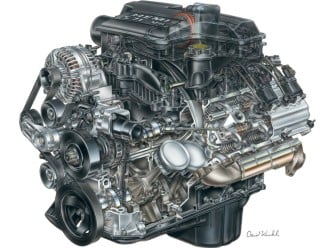Do Car Batteries Freeze?
Just one experience of the polar vortex shows how frigid temperatures freeze most things. Did you know that car batteries can freeze? Yes, I can. Says Gale Kimbrough, technical services manager at Interstate Batteries. However, it takes very extreme temperatures for a fully charged battery to freeze.

When is it likely to freeze?
"A 100 percent fully charged battery doesn't freeze until about -76 degrees Fahrenheit," Kimbrough said in a telephone interview. "A fully discharged battery will freeze at around 32 degrees." If a car battery discharges due to a damaged battery, a poor connection, or a charging system that doesn't work properly, the battery may begin to freeze at the same temperature as water: 32 degrees Fahrenheit.
The difference between a fully charged and discharged 12-volt battery is not huge.
"When I talk about a fully discharged battery, I'm not talking about zero volts," Kimbrough said. "A fully discharged battery is just under 12 volts. There are only eight-tenths of a volt difference between a fully charged battery and a dead one."
There are six batteries in a 12-volt battery, Kimbrough said, and if one battery is damaged, the voltage will drop below 12 volts. With batteries strung together like Christmas lights, he added, "you can never be weaker than the weakest."
How does the cold affect a damaged battery?
The electrolyte inside a car battery is made up of about 25 percent sulfuric acid and 75 percent water. The acid reacts chemically with the lead plate to produce electricity, mostly water in a discharged state, which is more likely to freeze. The water inside the battery freezes "like ice cubes in a refrigerator," Kimbrough said. "When it freezes, it expands, and when it expands, it pushes these plates together, often causing a short circuit between the positive and negative plates."
Such damage would mean that "in most cases, if not immediately, then for the long term," you would need a new car battery, he said.
The best way to determine the condition of your car's battery is to have it checked by a mechanic or, for those accustomed to checking it themselves, use a voltmeter to measure the charge. Kimbrough recommends checking the battery and charging system along with other routine maintenance, such as oil changes.
Years ago, especially before the advent of sealed, maintenance-free car batteries, most car owners were more diligent about checking batteries and charging systems for fear that they would freeze.
"The maintenance-free nature of today's batteries often makes us forget to replace them or check how old they are," Kimbrough says. "In the maintenance-free era, we didn't think about whether our car would start or not. As far as we're concerned, we've gone down somewhere."
What are some warning signs of broken batteries?
Warning signs that a car battery is no longer charging include headlights dimming or the vehicle clock starting to run, Kimbrough said. In some vehicles, the clock may reset to 12 o 'clock or 1 o 'clock. If the charging system's dashboard warning light comes on, it usually means the alternator is not charging the battery.

The indicator light on some car batteries will often glow green to indicate that the car's battery is fully charged, but Kimbrough said motorists should not count on this as it is "specific to one battery and has nothing to do with the other five"
Also, cold temperatures make it harder to start the engine because the oil is thicker and requires more effort from the electric starting motor. Cold weather can also drain battery power. Car batteries lose 33 percent of their power when temperatures drop below freezing and more than 50 percent when temperatures drop below zero, so you have less power to start your car when you need more, Interstate said.
"That's why preventive maintenance is a good idea," Kimbrough said.








